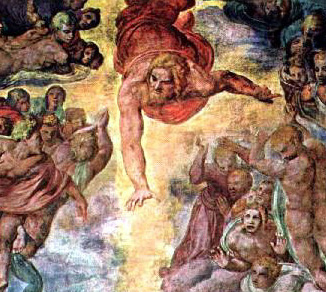Press release: Changing Faiths in early modern Europe
Posted on 7 September 2010

Two humanities researchers have received an award of over £450,000 from the Arts and Humanities Research Council to investigate changing faiths in sixteenth- and seventeenth-century Europe.
The project, led by Dr Simon Ditchfield and Dr Helen Smith, will investigate the nature of conversion and the stories people across Europe told about their changing beliefs. Two postdoctoral researchers, Dr Peter Mazur and Dr Abigail Shinn, will pay particular attention to the important examples of Italy, and of England, Scotland, and Ireland. Their researches will take them as far afield as the Netherlands, Spain, North Africa, and the Americas, as they trace the particular stories of converts, missionaries, and travellers. Two international conferences will place this work in a truly global context.
The period from 1550-1700 was one of widespread religious conversion. Thanks to the Protestant and Catholic Reformations, pressure from the Ottoman empire, and the expansion of global trade, an unprecedented number of people across the world from Britain to Peru and Mexico were being confronted by new beliefs. As Simon explained, ‘some people changed faith voluntarily, while others were forced to do so. For others still, conversion meant not a change but an intensification of religious belief which changed their sense of identity. Our project will explore a huge range of printed and manuscript accounts, as well as paintings, statues, and other materials, by and about individuals who converted from and to Judaism, Islam, Christianity, and other faiths. Our aim is to explore how these people - from slaves to merchants and ambassadors - made stories from their experience of conversion’.
The project brings together Simon’s expertise on the history of religion (he is currently writing a book which surveys the making of Roman Catholicism as a world religion), and Helen’s interests in how books were reproduced and moved between people and across political and geographical boundaries in this period.
Helen commented, ‘it is important for us to understand just how important religious belief was to people’s sense of self in the early modern period. Stories of conversion can be found in many well-known literary works: Shakespeare’s Othello is a converted Christian; Christopher Marlowe explored the tensions between different faiths; John Donne was himself a convert and kept returning to themes of religious belief and personal identity. Through a better understanding of the part religion played in early modern cultures, we will also gain fresh perspectives on issues that are very topical today such as the way interfaith communities work together, and the importance of religious toleration in a multicultural society ’.
The starting point for ‘Conversion Narratives’ was a conversation in the University’s Centre for Renaissance and Early Modern Studies (CREMS), a centre with wide-ranging expertise in the history of religion and the history of books. The project, which will lead to an important series of publications, demonstrates York’s reputation for world-class interdisciplinary research in the humanities. Peter Mazur and Abigail Shinn will join Simon and Helen to form an interdisciplinary research team, based at the University’s Humanities Research Centre within the spectacular new £11m Berrick Saul Building. Jane Moody, Director of the Humanities Research Centre, commented, ‘“Conversion Narratives’ is a project which will transform our understanding of religious beliefs in and beyond Europe, both in the past and in the present. We are delighted that the AHRC is funding this urgent and exciting research’.
One of the innovative features of this project is its commitment to sharing the processes and the results of research as widely as possible. Members of the public will be able to find out more about ‘Conversion Narratives’ through an interactive website, enabling access to a variety of rare archival materials including letters, diaries and paintings about conversion. Researchers will blog about their experiences as they search for evidence and begin to unpick their finds. They will also create teaching materials and visit local schools. The project will culminate with an exhibition which will explore the pressures of religious change in a period when individual consciences were exposed to public scrutiny as never before.
